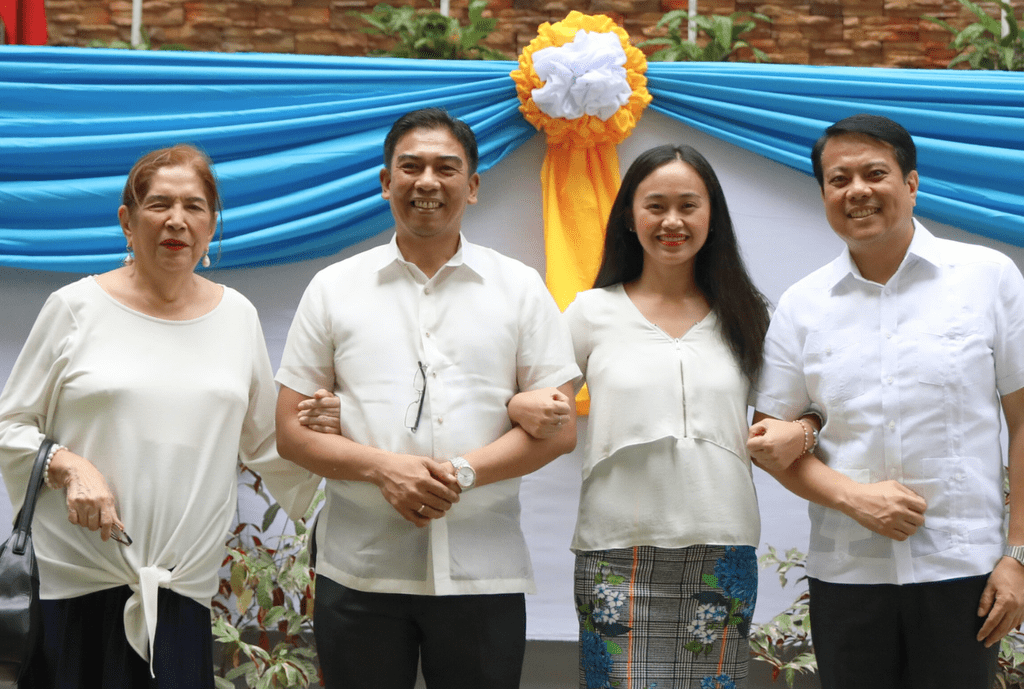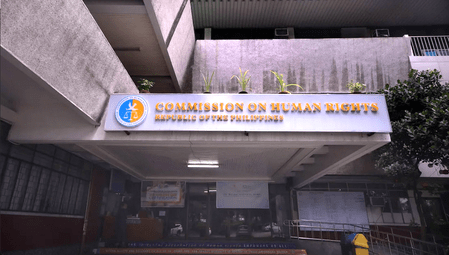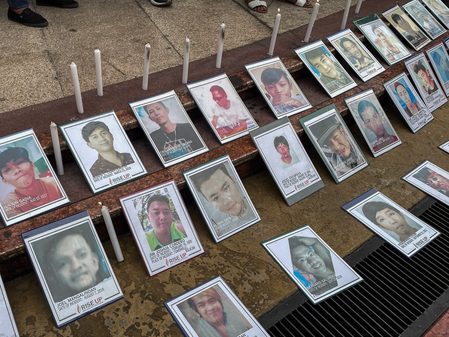MANILA, Philippines – President Ferdinand Marcos Jr. is taking his time filling the last vacant spot in the five-person en banc of the Commission on Human Rights (CHR), earning for him the record of being the first president, post-dictatorship, to keep an incomplete CHR for this long.
This is the longest period – one year and seven months – in CHR history that its en banc has remained incomplete, Chairperson Richard Palpal-latoc confirmed to Rappler. The commission has yet to receive any “personal communication” from the Marcos administration on this.
The 1987 Philippine Constitution states that the CHR en banc should be composed of a chairperson and four commissioners.
Palpal-latoc, who was appointed in September 2022 or more than two months into the Marcos presidency, said that the CHR “continues to function even in the absence of the fifth member of the en banc.”
But having five decision-makers is crucial “not only to the principle of plurality but also the independence of the institution for it to continue to be credible and to operate effectively,” said former commissioner Karen Gomez-Dumpit, who served in the Chito Gascon-led CHR under former president Rodrigo Duterte.

Tie-breaker
Why is this important? Because the CHR is continuing its investigation into Duterte’s drug war, and any move by the commission has profound effects on the campaign for accountability in the bloody drug war, including, but not limited to, the former president himself.
Government data show that at least 6,252 individuals were killed in police anti-drug operations by May 31, 2022, while rights groups estimate the number to reach 30,000 to include those killed vigilante-style.
CHR is also taking a proactive approach to investigating red-tagging and media killings, issues that Marcos wants to be seen as an advocate of. Local groups have cautioned against buying Marcos’ human rights posturing hook, line and sinker.
That is where credibility becomes a factor. CHR has to be seen as an independent agency that it is – where there is collective decision-making. Should there be a tie, the fifth member breaks the stalemate.
“This will guarantee that CHR is able to deliver a complete representation of all sectors and be able to cover a wide expanse of issues that Filipinos experience within the realm of human rights,” said Palpal-latoc.
Dumpit, with her almost three decades of experience at the CHR, knows well how things play out at the en banc. She was part of the fifth CHR en banc that served from 2015 until May 2022. She entered the commission as executive assistant in 1993 and held the position of child rights’ center prior to becoming commissioner. In total, Dumpit worked at the CHR for 28-and-a-half years.
“In reality, there are issues where you differ based on one’s perspectives, persuasions, principles, and yes, politics, so even in the most congenial of bodies, there will be differences, and that one vote to tip the scale can make that crucial policy or administrative decision,” Dumpit explained.
Is it even a priority?
CHR was the punching bag of former president Rodrigo Duterte and his allies. During the previous administration, the commission was attacked, threatened, and its mandate questioned not just by the government, but also the public.
While Marcos has not attempted any of Duterte’s vicious attacks, the prolonged time it’s taking him to fill the en banc raises questions about his intentions.
Philippine Human Rights Information Center executive director Nymia Simbulan said that this shows that under the current administration, “CHR is not treated as a very important or vital institution of the country.”
“The fact he allows the en banc to remain incomplete, and that would lead to implications in terms of its operations and performance of its mandate, the Marcos government does not see the CHR as an important institution despite the fact that it would claim consistently that it advocates human rights,” Simbulan said.
Since Marcos took over as president, rumors swirled about who will be chosen to fill the vacant seats at the CHR leadership. Recently, Rappler learned of several names that Malacañang is allegedly considering to appoint to complete the CHR en banc. The roster includes government officials whose career may or may not be connected to the CHR’s mandate, or individuals whose reputation does not sit well with the human rights community.
But just like in past instances, it is hard to get confirmation until appointment papers are signed by the President himself.
It’s not as if there’s a shortage of qualified and competent human rights defenders in the country who could effectively carry out the commission’s mandate, Simbulan emphasized. If he wanted, Marcos could just appoint someone from the list of names human rights groups submitted.
“Hindi kami remiss sa responsibility at obligation sa pag-nominate kasi we did submit a list hoping na mapakinggan kami o respected, But, contrary to that expectation, hindi rin naman kami pinansin,” she said.
(We are not remiss in our responsibility and obligation to nominate because we submitted a list hoping we will be listened to or respected, but contrary to that expectation, we were ignored.)
“The current setup and the current way of appointing members of the commission works to the advantage of the government because there would be no headaches,” Simbulan added.
Who’s who in the en banc
There are approximately three months in between the appointment dates of the CHR chairperson and three commissioners so far named under Marcos. This is a clear departure from the practice of previous presidents who usually named all CHR en banc members in one go, if not only days apart.
After Palpal-latoc and commissioner Beda Epres’ appointment in September 2022, it took Marcos three months and 14 days to name lawyer Faydah Dumarpa as new commissioner. Retired Court of Appeals associate justice Monina Zenarosa joined the en banc two months and 24 days after Dumarpa.
Monitoring who are appointed to the en banc also entails identifying where the commissioners, and the chairperson stand. Sources within CHR, however, told Rappler that it is too early to determine the decision patterns of each commissioner, as there are still not that many issues the leadership has decided on so far.
These employees, however, are aware of the optics of an incomplete en banc. But more practically, they are concerned about the workload, especially since the CHR is already suffering from challenges brought about by lack of resources, both financially and people-wise.
Dumpit explained that the CHR en banc operates on a “focal commissioner system,” which means that a commissioner takes the lead in handling specific human rights issues and concerns, among others.
In the early days of the current CHR leadership in 2022, back when it was composed only of Palpal-latoc and Epres, the two told reporters they were already having difficulty distributing the assignments among themselves.
Months later, in November 2023, Palpal-latoc said that the commission is “able to deliver the demands” of its mandate.
“We have always exhibited our readiness to respond to the continuing and emerging human rights concerns in the country,” he said, pointing out that the commission continues to undertake programs and projects “all in support of effectively and faithfully implementing our mandate.”
The human rights situation on the ground remains unchanged despite Marcos’ positioning. The bloodbath continues, with the Dahas Project of the University of the Philippines’ Third World Studies Center recording at least 471 drug-related killings from July 1, 2022, to November 15, 2023.
But as the International Criminal Court (ICC) continues its investigation into Duterte’s drug war and killings linked to the alleged Davao Death Squad, non-opposition lawmakers are now urging the Marcos government to cooperate.
A less controversial human rights move would be to complete the CHR en banc, and perhaps give it its own charter which the commission has long been asking for.
– Rappler.com
This post was originally published on this site be sure to check out more of their content.










